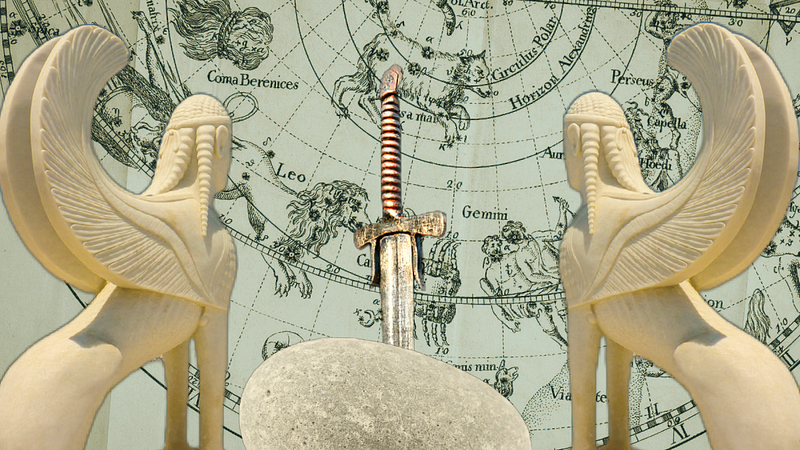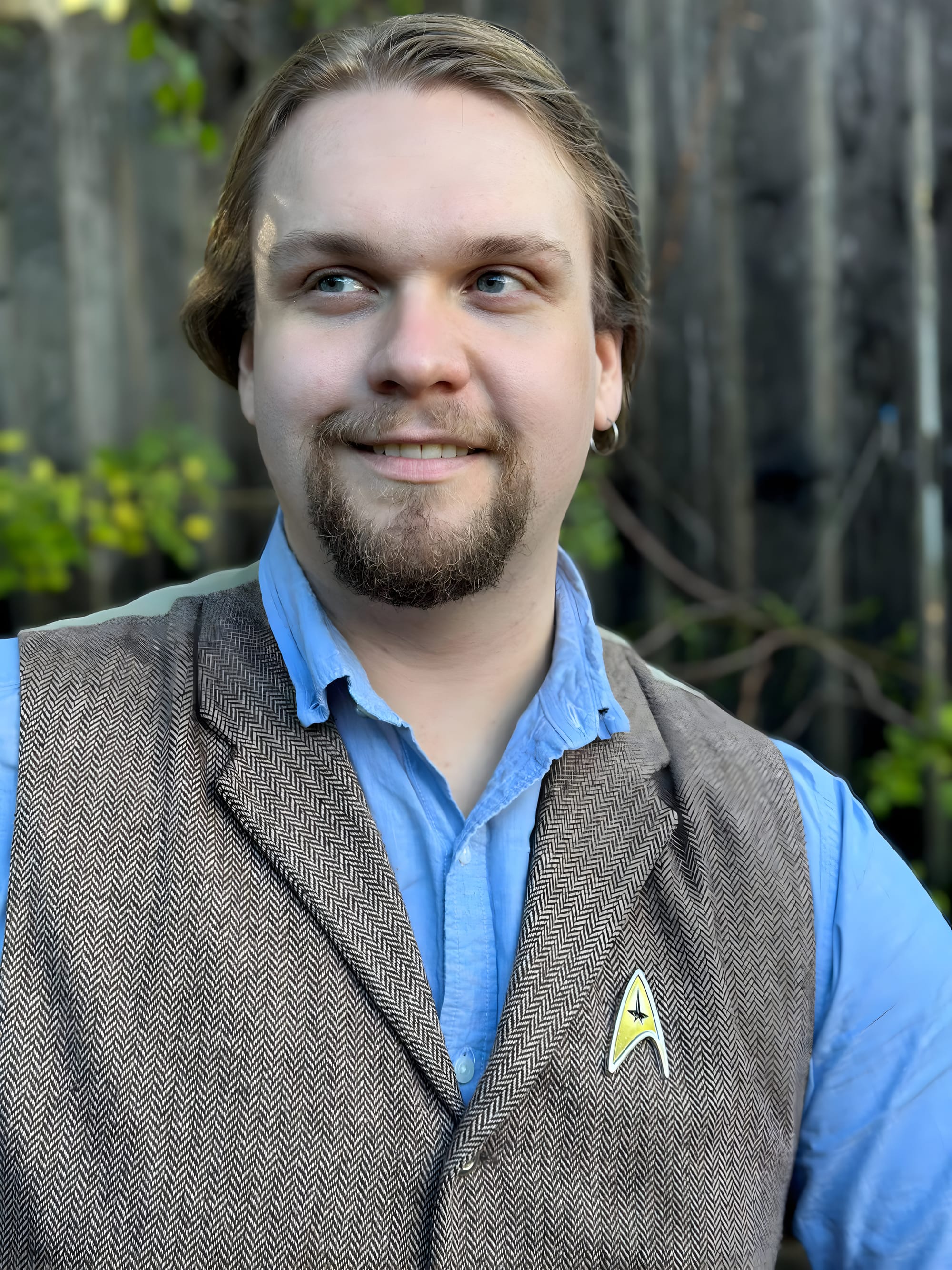In our mythic stories, the hero is often set upon their path by supernatural forces, and during their moments of greatest need, such forces reappear to ease the hero’s burden or simplify the path they tread upon.
The renowned mythologist, Joseph Campbell, studied all the mythologies, religious practices, folklore, and fairy tales of the world. He pried into every current of our collective unconscious and discovered a pattern that he termed “the monomyth.” This is an observed framework of mythological story, independent of location, that arises from a Jungian collective unconscious.
Out of this emerges the “hero’s journey,” the cyclical pattern that underpins the journey taken by heroic characters in myths around the world. There are many stages to the hero’s journey, but my focus in this article is on the supernatural force that appears to the hero and offers them aid. This concept, once understood properly, and applied to life, can be a passage into very real personal growth and social change.
“It is not difficult for the modern intellectual to concede that the symbolism of mythology has a psychological significance.”
Who among us has not wished for such an occurrence, at some point in our lives? We contain a deep instinct that leads us to long for something outside the bounds of sticky reality, something looking out for us, or something that we can appeal to so that we might change the circumstances of reality.
Of course, we can will ourselves into a “fantasy… [of] reassurance — a promise that the peace of Paradise, which was known first within the mother womb, is not to be lost” (66). We end up objecting to reality, and twisting reality, to suit our mythic stories and our unconscious impulses.
And yet, when we do this, we actually cut ourselves off from the mythic source, the vast pool of unconscious experience that exists within us in the form of patterns and symbolic form.
Campbell writes that it “is not difficult for the modern intellectual to concede that the symbolism of mythology has a psychological significance” (237). Our mythic patterns inform who we are, translate into direct behaviors in our day-to-day lives, and underpin all the ethical frameworks and moral considerations that thread through our societies.
Yet, once pinned down as fact and given names, they lose their luster. Suddenly, we have left the world of psychological myth and entered the world of playacting: the more we maintain that what we believe is true, the more we find ourselves enamored with a hall of mirrors, while beyond those reflective corridors vast rivers of ancient feeling go entirely uninspected.
This is the power known to science as energy, to the Melanesians as mana, to the Sioux Indians as wakonda, the Hindus as shakti, and the Christians as the power of God.
The great mythological symbols within us are “spiritual principles,” as Campbell points out, “which have remained as constant throughout the course of human history as the form and nervous structure of the human physique itself” (239).
Briefly formulated, the universal doctrine teaches that all the visible structures of the world — all things and beings — are the effects of a ubiquitous power out of which they rise, which supports and fills them during the period of their manifestation, and back into which they must ultimately dissolve. This is the power known to science as energy, to the Melanesians as mana, to the Sioux Indians as wakonda, the Hindus as shakti, and the Christians as the power of God. Its manifestation in the psyche is termed, by the psycho analysts, libido. And its manifestation in the cosmos is the structure and flux of the universe itself. (239)
If this is the case, then our first duty, as a being seeking self-awareness, is to uncover our connection to this primal tapestry of the psyche. Which is the same place that the hero must enter when contending with the three greatest dangers they must face:
· The reluctance to leave what is known,
· the futility of action in the face of overwhelming hardship,
· and the danger of seduction, and therefore blindness or apathy.
In the first, the hero is unwilling to expand beyond the bounds of their own comfort. And “comfort” need not be happy or good, merely that which is well-trodden (well-known).
In the second, the hero must grapple with the hardships of reality, the grit, grime, and blood of a miserable human life so intrinsically tied to fear, loss, and pain. After we have left the comfort of the known, encountering these hardships point backwards, attempt to bar the path of progress.
Therefore, God and the gods are only convenient means — themselves of the nature of the world of names and forms, though eloquent of, and ultimately conducive to, the ineffable.
In the third, the hero has left home, made it through the hardships of life, and finds themselves enamored with a new status quo that is offered to them by some powerful force. Seduction, in the myths, might be a literal matter of sex, a matter of primal need. Yet, seduction is a much wider case: seduction to an ideal, a position, a belief, a dogma: anything that calls out and says, “This will return you to a place of safety!”
Only by passing through all of these, can a hero progress, and earn their new plateau of experience and self-awareness. As Campbell points out (emphasis, mine):
Myth is but the penultimate; the ultimate is openness… into which the mind must plunge alone and be dissolved. Therefore, God and the gods are only convenient means — themselves of the nature of the world of names and forms, though eloquent of, and ultimately conducive to, the ineffable. They are mere symbols to move and awaken the mind, and to call it past themselves. (240)
To aid the hero in overcoming the trials, a form of supernatural aid appears. Yet, in the real world of our practical life it seems unlikely that a fairy godmother will arrive at the last minute to save the day, nor a Gandalf emerge from the misty road to push us out our comfortable front door.
We must be exceptionally careful not confuse the role of the mentor with that of the supernatural aid, for the two are wholly distinct: the mentor, in a sense, must also be overcome by the hero.
How, then, can we accomplish the monumental task of self-awareness?
The goal is to build within yourself a portal of access to this deeper realm.
The key, luckily, lies within the deep subconscious that we carry around inside our minds. The mentors in our lives cannot fulfill the role of supernatural aid because the only true portal to the aid we need is within us, individually. Since “Heaven, hell, the mythological age, Olympus and all the other habitations of the gods, are interpreted by psychoanalysis as symbols of the unconscious” (240), we are, ourselves, the gateway to supernatural aid.
The key to the modern systems of psychological interpretation therefore is this: the metaphysical realm = the unconscious. Correspondingly, the key to open the door the other way is the same equation in reverse: the unconscious = the metaphysical realm. (240)
Therefore, our practice must be one of inner communion, and the emancipation of our subconscious from the dogmatic binds that experience has placed upon them.
Each night, you slip into the realm of dreams. As we have learned from Campbell’s work, this realm is the doorway into the deepest unconscious. Therefore, it is within the realm of dreams that we must dive if we wish to access the aspect of the so-called supernatural aid that we carry in our mythic blood.
The goal is to build within yourself a portal of access to this deeper realm. Doing so takes time, effort, and patience, but will ultimately bring forth your deepest internal aspect as a guiding force within your everyday life.
Campbell, Joseph. The Hero with a Thousand Faces. Commemorative ed, Princeton University Press, 2004.

